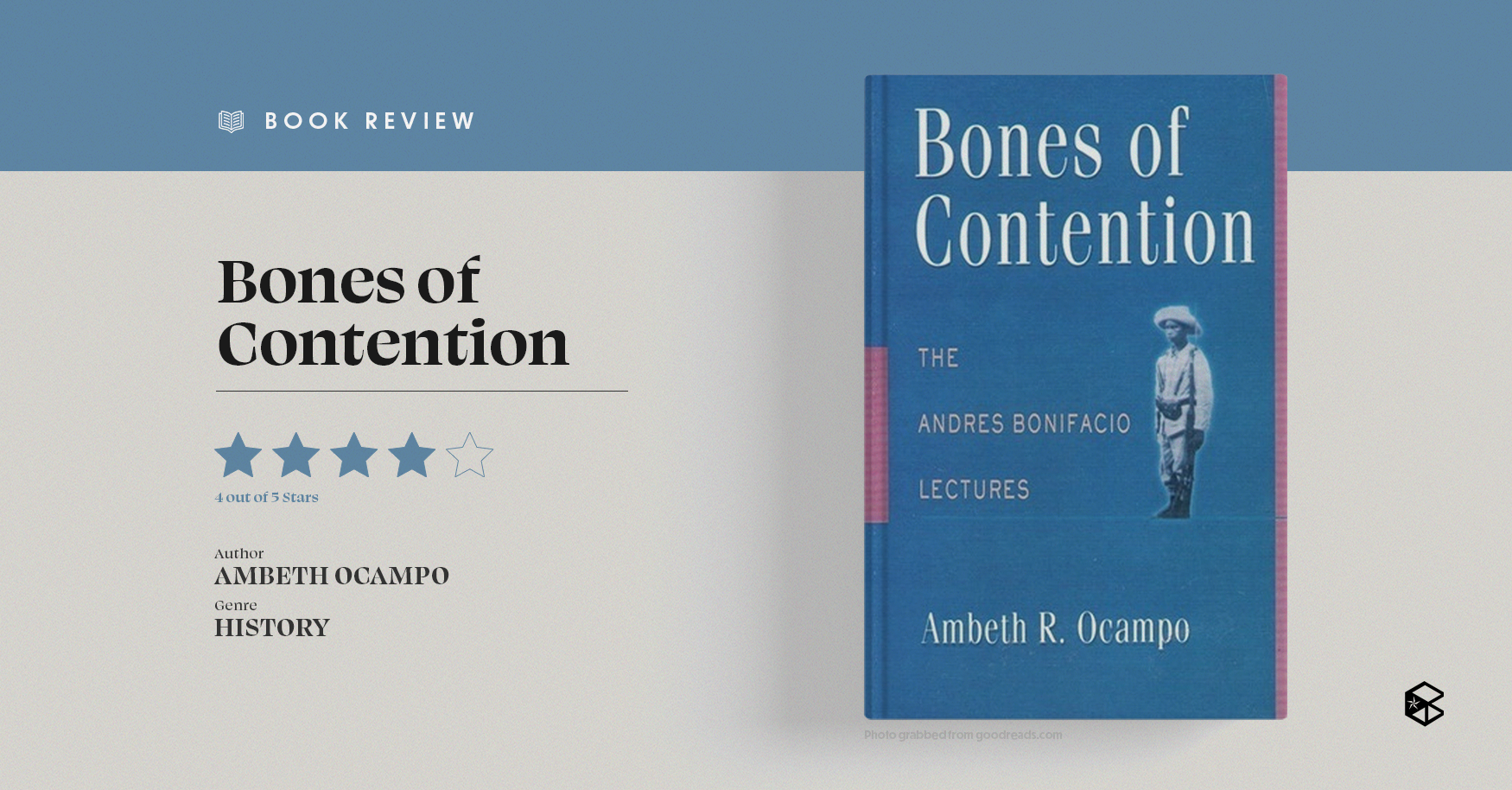On Bonifacio Day, we celebrate the legacy of Andres Bonifacio through our general manners of commemoration—we make the most of the non-working holiday and engage with a poster or two, but Bones of Contention: The Bonifacio Lectures poses an important question—do we really grasp what we are celebrating?
Ambeth R. Ocampo offers a critical vision into the life and death of Bonifacio, from his role as the Supremo of the Katipunan, speculations of his death, to the iconography of disputed relics, providing important commentaries on how we as a nation approach history. Best known for his works on national hero José Rizal and on Philippine history, Ocampo is a revered historian, author, academic, and journalist.
Firsthand perspectives
Divided into multiple narrative essays, Bones of Contention cites an abundance of primary sources on the history of the celebrated hero, accounts that piece together one story and accounts that altogether contradict each other. This is what Ocampo emphasizes about literacy and history-–that it is more about facing questions than gaining answers about the heroes we celebrate, that by looking into these rich mines of information, we learn to critically understand our national identity.
The book positions the reader between stories that focus on the blood-curdling events leading to Bonifacio’s execution. Ocampo highlights that it is not a pretty story but one full of deception, assault, and cruelty, and the Bonifacios were not dignified in these final moments. This furthers the point that our general patronage on Bonifacio Day does little to fully honor his memory, making Bones of Contention a must-read, especially on this day.
The meaning we give
From the title itself, the book traces Bonifacio’s story through relics—from alleged weapons he used to his exhumed bones, accompanied by contests of authenticity. Ocampo does not aim to relay a singular narrative on the hero’s memory but invites readers to reflect on how relics and pilgrimage sites take on different meanings and interpretations, especially when time and war degrade the primary documents that legitimize them.
Hence, Bones of Contention is as much a guide to approaching and learning history as it is a deep dive into the legacy of Bonifacio. Additionally, the book goes into deeper analyses of various contexts of the Philippine revolution, from the racial pyramids during the Spanish regime to even the menu of the Malolos banquet as a historic document.
Literacy as liberation
Overall, the book echoes how we can fully commemorate Andres Bonifacio and continue to liberate ourselves-–by exercising our literacy and reading history as it cultivates a national memory and identity. However, this identity must not be derived from a singular story that claims all truth for we must continue to gain more questions about our history as much as answers, and just as Ocampo stated, must give up the notion that history is a closed book.
You can secure Bones of Contention in Benilde’s CLR, and you can also purchase the books in physical and online shops such as Shopee and Lazada.


